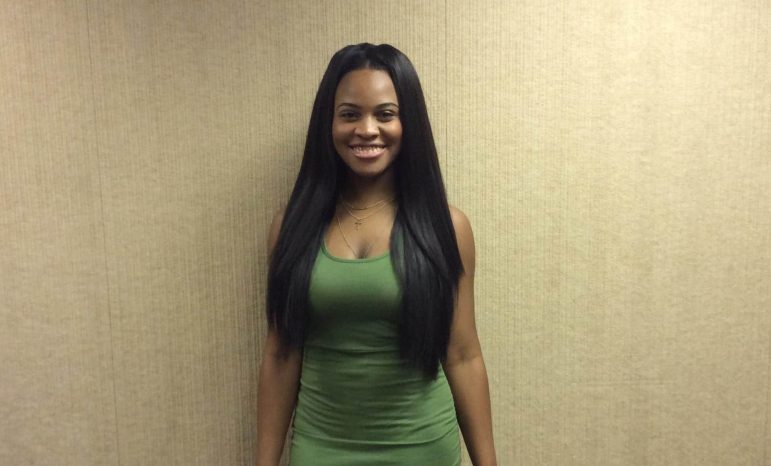High school is a time when most students get a better idea of who they are, and what they want to be. For commentator Paula Odogwu (oh-DOUGH-goo), that transformation wasn’t easy. But in the end, she found her true self.
When I was four years old, my mom, my sister and I left Lagos, Nigeria, and joined my father in a country full of opportunities and dreams. That was my first time on a plane, and I banged on the windows wishing I could touch the clouds. My mom was terrified.
At first, I didn’t go to school. We weren’t citizens and my mom didn’t know how to enroll me in school. My parents contemplated moving back to Nigeria, until my pastor called the Board of Education on our behalf. The next week I started kindergarten in America. Now, I’m a graduate of Ramsay High School.
My life has always been different from those of my peers. My classmates and I faced obstacles and worked hard to get to where we are. But none of my friends had fathers who went back to Nigeria in order to provide for their family. With his own company to run, my dad couldn’t just leave his home country to find work in America, and I understood that.
I also understood, I had a lot of responsibility. At age nine, I learned to cook for myself and my sister.. By12, I was cooking up a Nigerian dish of rice and stew, which was almost as good as my mom’s — and always had them coming back for seconds. Although I enjoyed cooking,I had to watch my younger siblings while my mom was at work and make sure the house was always spotless. I can only remember two times where I got to hang out with friends and truly be a kid.
At the same time, I began learning how to juggle two cultures at once. Third grade was the first time my classmates noticed I was different. In Nigeria, kids are expected to be smart – it’s ingrained in the culture. I was smart, but my classmates saw this as an opportunity to single me out as a nerd. Being smart was not cool.
I came into middle school quiet, thinking that if I didn’t say anything, that would fix the teasing, but it only made things worse. My classmates thought my silence meant I was too good to talk to them. Eventually, I was shut out of conversations, groups and lunch tables.
Every year I heard the same degrading questions: “Did you live in trees?” “Did you wear clothes?” “Do Nigerians believe in soap and deodorant?” I expected people of the same skin color whose ancestors went through slavery to know how it feels to be stereotyped. Yet I was reminded that as an African, I was still not one of them.
Sure, I felt welcomed at times, but never secure. It would’ve been much easier if everyone would understood that it is entirely possible to be part of two completely different cultures at once.
I also tried to hide myself with makeup and weave. I felt like I needed it, that I was ugly without it.
The turning point came during my junior year. I ran out of foundation so I put on my eyelashes, eyeliner and mascara and went anyhow. My best friend saw me, and said I looked better without it I didn’t believe him but it made me feel secure to hear that. Bit by bit, I started showing my true self. My senior year, I wore my natural hair in an Afro for the first time, something I’d never had the courage to do.
I’ve been writing poetry for myself for years, but this year, I shared one of my poems in front of the entire school, and people finally know how I feel — understood, confident, and that I have a purpose.
I didn’t have the typical journey most high school students experience. I had to learn to figure out what it meant to be an American, and what it means to be me, all while balancing and combining two very different, very beautiful cultures. True happiness comes from self acceptance — not from the acceptance of others. It took a while, but I’m finally living life as the person I want to be.
Paula Odogwu (oh-DOUGH-goo) is a graduate of Ramsay High School. She’ll attend Tuskegee University in the fall. This commentary was edited by WBHM’s Michael Krall and produced in partnership with the Birmingham Education Foundation.

